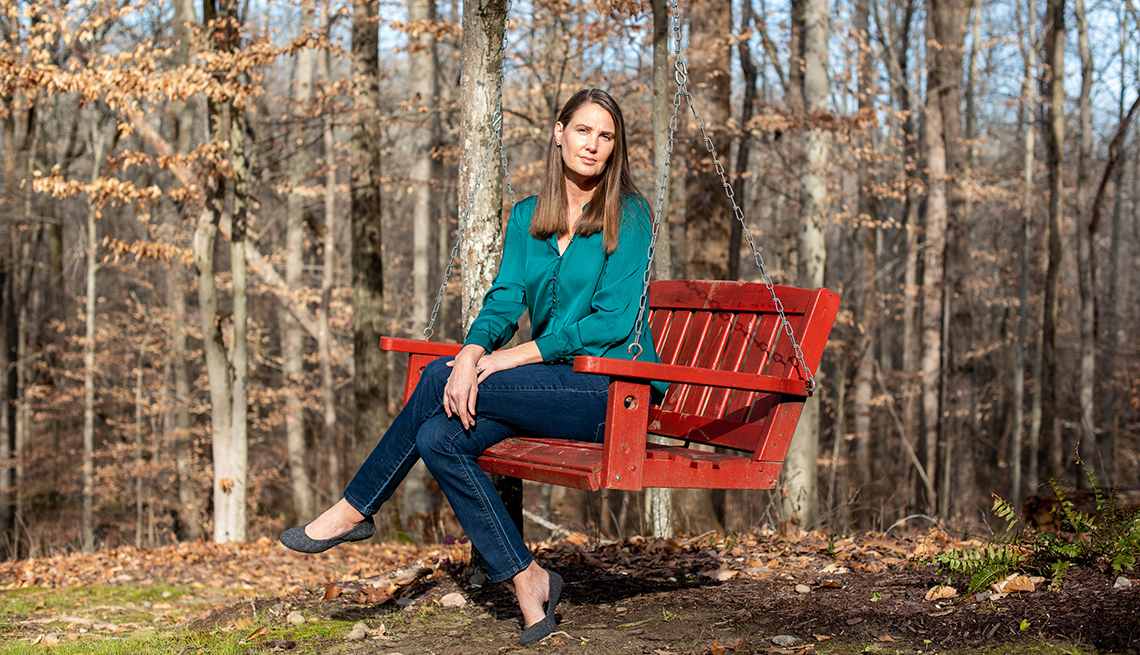AARP Hearing Center

Paige Henline moved her mother into the memory unit of an assisted living facility near her home in Oak Ridge last January because she believed it was the safest place for her.
But when the coronavirus struck in March, the facility went into lockdown. Henline’s mom, 73, who has dementia, was confined to her room, and her health quickly deteriorated. She lost weight and went to the hospital four times with injuries from falls.
“It has been truly devastating,” Henline, 49, said. “These people have been left vulnerable for months. You cannot monitor your loved one’s care from a
distance.”
The COVID-19 pandemic has ravaged nursing homes and assisted living facilities, with residents suffering both from the disease itself and from the mental health effects of social isolation.
About half of COVID-19 deaths in the state have been connected to long-term care facilities.
Lisa Riegel, AARP North Carolina’s advocacy director, said the pandemic highlighted long- standing issues with the state’s long-term care system.
Problems include staffing shortages, low wages, high turnover, a lack of oversight and not enough technology for virtual visits, Riegel said.
“Even worse, we know there is underreported elder abuse, and it has probably been exacerbated by COVID,” she added.
North Carolina ranks 38th in the nation on AARP’s 2020 Long-Term Services and Supports Scorecard, which evaluates 26 specific indicators related to care.
More protections needed
After the pandemic hit, AARP North Carolina pressed the General Assembly, state agencies and industry representatives to take steps to protect residents in nursing homes and assisted living.
AARP pushed the state to disclose names of nursing homes with COVID-19 outbreaks and helped secure more money for personal protective equipment, technology, testing and staff.
Volunteer AARP advocates have also been outspoken about the negative health effects of social isolation, urging more virtual and in-person visitation.
In September, the state health department began allowing restricted indoor visits at nursing homes if there were no clinical or safety barriers.
This year, to combat elder abuse, AARP North Carolina will urge state lawmakers to increase funding for adult protective services and the ombudsman program, which investigates care concerns and complaints.
Another goal: more spending to support older adults who want to age in place at home.
Improving staffing ratios, wages, working conditions and the quality of care in facilities is also a priority, Riegel said.
The average hourly wage for certified nursing assistants at homes in North Carolina is just over $12 an hour, said Lauren Zingraff, executive director of the advocacy group Friends of Residents in Long Term Care.
Although a state grant program paid for some technology upgrades last year, many nursing homes still don’t have Wi-Fi or even a phone in every resident’s room, Zingraff said.
AARP North Carolina will advocate for different ways for family members to communicate with loved ones and push for safe in-person visits, Riegel said.
Michelle Crouch is a writer living in Charlotte.
More on Long-Term Care































































